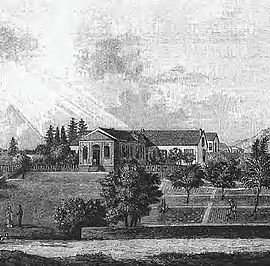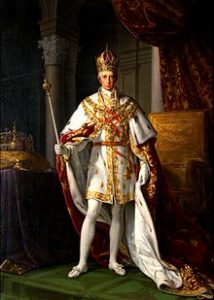 Napoleon is elected to Institut de France
Napoleon is elected to Institut de France
The Institute was the foremost scientific society in post-Revolutionary France, and when General Bonaparte was chosen to fill in Lazare Carnot’s seat, which had been declared vacant, he couldn’t be happier. He secured the votes of 303 members out of 312, with the next two candidates only receiving 166 and 123 votes. Napoleon wore his dark-blue uniform of the Institute often, attended science lectures and signed himself as a member of the Institute. In his thank-you letter to the president the next day, Napoleon wrote: ‘The true conquests, the only ones that cause no regret, are those made over ignorance.’
Napoleon deserved the honour accorded him. He was an accomplished writer, a profound reader, a critic of drama, and music and a champion of sciences, who enjoyed meeting astronomers, poets, theologists, and mathematicians. Whenever he travelled on one of his campaigns, he assembled and took with him the most impressive libraries, not only reading himself but also forcing his marshals and officers to read. Later Napoleon would establish Institut d’Égypte and University of France. Many leading intellectuals of the 19th century, such as Goethe, Byron, Beethoven and Hegel, admired Napoleon greatly.
 Infernal Machine plot
Infernal Machine plot Napoleon is promoted to Brigadier-General
Napoleon is promoted to Brigadier-General Napoleon arrives at the Tuileries Palace after the fiasco of his Russian campaign
Napoleon arrives at the Tuileries Palace after the fiasco of his Russian campaign Napoleon sends Lieutenant Fourès away from Egypt
Napoleon sends Lieutenant Fourès away from Egypt Three Consuls named
Three Consuls named Napoleon moves to Longwood
Napoleon moves to Longwood Execution of Michel Ney
Execution of Michel Ney Napoleon meets with Emperor Francis of Austria
Napoleon meets with Emperor Francis of Austria Napoleon issues the most famous of all his bulletins
Napoleon issues the most famous of all his bulletins